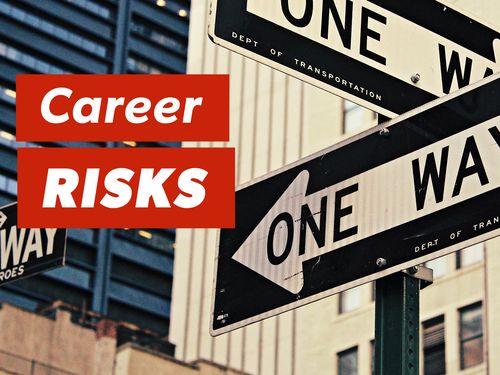Why taking career risks won’t hurt your reputation
Dec 03, 2021 · 2 mins read
0
Share
When weighing up a big career change, perceived risk to our reputation often stops us from making smart but unconventional choices. For some, it can be a more powerful deterrent than financial considerations.
Save
Share
In the cryptocurrency world, many prominent fund managers are in their twenties. Yet among venture capital investors in the wider tech industry, leading figures tend to be twice that age. There should be no reason for this age gap, so why does it exist?
Save
Share
In 2015, VC investors were more inclined to work with traditional tech startups, as sticking with what you know is always easier. Cryptocurrency was still a novel field that seemed strange and risky. Losing a lot of money on it would be an easy way to look stupid.
Save
Share
The people best suited to exploring cryptocurrency’s potential early on were those who had little at stake, both financially and in terms of reputation. Take Kyle Samani: before he became a prominent hedge fund manager, he was an unemployed 26-year-old that nobody ever heard of.
Save
Share
Branching into a new specialization requires time. It takes effort and focus to get up to speed. When there’s already a trusted way of earning money, that time investment could seem like a massive gamble for anyone with an image to protect.
Save
Share
Success makes failures more forgettable. Before co-founding LinkedIn, Reid Hoffman launched a failed dating site called SocialNet. People associate Marc Andreessen with web browsers Mosaic and Netscape, not the open-source social platform Ning (which never took off).
Save
Share
Missed opportunities may be the biggest career mistake of all. People choose to play it safe without realizing that mitigating risk means mitigating reward – and that pursuing more conventional paths (which are rife with competition) is not so safe at all.
Save
Share
Take calculated risks that offer asymmetric rewards – ones where you either win big or can move on swiftly. If you’re young, you can credit missteps to immaturity or timing (e.g. “Google Glass could have been huge. It was ahead of its time...”).
Save
Share
Being unafraid of what others think makes you more inclined to keep going and to take high-upside risks that others won’t. Looking smart every step of the way is unrealistic. It’s looking smart at the end that matters... and that can mean looking dumb in the short-term.
Save
Share
Whatever you do, there’s always a risk that your career change will end up looking foolish. That’s life. Just make sure you pursue an opportunity that, even if it doesn’t pan out, makes the journey worthwhile.
Save
Share
0
